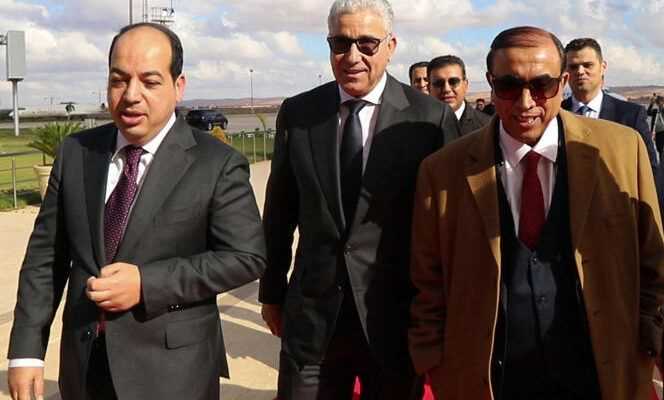A committee of the Libyan Parliament responsible for monitoring the presidential election on Friday, December 24, concluded on Wednesday at “Impossibility” to hold this election on the due date, considered a key stage in the transition.
“After consulting the technical, legal and security reports, we inform you of the impossibility of holding the election on the date of December 24, 2021 provided for by the electoral law”, wrote the chairman of the said committee, Al-Hadi al-Sghayer, in a report to the head of parliament, without advancing a new date. The text asks the head of Parliament, Aguila Saleh, to resume his functions, from which he had taken leave to run for president, in order to “Relaunch the political process and reformulate the road map” so to lead the country towards democracy.
Following this announcement, the High Electoral Commission (HNEC) proposed to postpone the poll by one month. “After consultation with Parliament, the HNEC proposes to postpone the first round of the election until January 24, 2022. Parliament will take responsibility for adopting the necessary measures to remove obstacles to the electoral process”, she announced in a press release.
Since the fall of Muammar Gaddafi in 2011, Libya has failed to extricate itself from a decade of chaos, marked in recent years by the existence of rival powers in the east and west of the country. The December 24 election was to mark the culmination of a UN-sponsored political process to end this chapter of divisions and instability. After the ceasefire signed in October 2020 between the camps in the east and the west, a new unified government was set up at the beginning of the year, at the end of a laborious process overseen by the UN, to manage the transition between now and the December 24 election.
Militiamen deployed in Tripoli
If the postponement of the poll had been no doubt for several days, against a background of persistent disagreements between rival camps and chronic insecurity, no official announcement had yet been made. No institution seemed willing to take the responsibility of formalizing such a postponement, the HNEC and the Parliament based in Tobruk (east), in conflict, each considering that it was up to the other to do so. On Tuesday, armed militiamen were deployed in Tripoli, raising fears of a resumption of violence as a postponement of the election loomed.
The main figures who ran for president are Gaddafi’s youngest son, Seif al-Islam, Marshal Khalifa Haftar, a strong man from the east, and the current prime minister, businessman Abdelhamid Dbeibah. Heralding a possible recomposition of the political landscape, two leading candidates from western Libya made an unprecedented visit to Benghazi on Tuesday, where they met Marshal Haftar.
To not miss anything on African news, subscribe to the newsletter of World Africa from this link. Every Saturday at 6 a.m., find a week of current events and debates treated by the editorial staff of World Africa.
